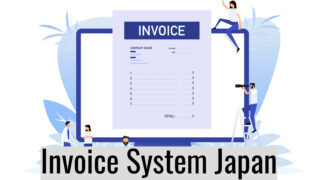Is Japanese government finally trying to catch up with world’s digital standards?
The Electronic Book Preservation Act was revised on 2021 and came into effect on January 1, 2022. This is a law that allows books and documents, which in principle are required to be kept in paper form under various tax laws, to be stored as electronic data subject to certain requirements.
The law also stipulates the obligations to preserve transaction data exchanged electronically. These obligations are deferred until the end of December 2023. So, companies need to treat electronic transaction data in accordance with this Act from 1st January 2024.
History of Electronic Book Preservation Act
This Electronic Book Preservation Act was first enacted in 1998, about 25 years ago. At the time, there were no smart phones such as the iPhone yet, but computers, the Internet, and accounting software for filing income tax returns were gradually becoming popular.
The initial version of this law had some inconveniences for businesses operators and sole proprietors. For example, they needed to obtain prior approval from the tax office in order to save documents such as account books and receipts as electronic data. The desire to store all books, receipts, and other documents in electronic form rather than on paper has been hindered by the rigid procedures imposed by the government.
In addition, many companies and sole proprietors did not want to change their long-established management practices, and the paperless system has been slow to take off in Japan. This is the same way that seals and Faxes are still widely used in Japan even in the 21st century!

However, with the reformation of the Electronic Book Preservation Act, Japan is about to take a major step in the direction of digitization.
Main procedures relaxed by the revised Electronic Book Reservation Act
Prior Approval System Abolished
As mentioned above, in order to electronically store books and documents, it was previously necessary to notify the tax office in advance and obtain their approval. With the recent revision, this prior approval system has been abolished, and the hurdles to electronically storing books and documents have been greatly eased.
Relaxation of Time-Stamping Requirements
Prior to the amendment, when an employee received a receipt or other document, in order to save it as electronic data instead of paper, the employee was required to sign the document, scan it with a scanner, and time-stamp it within three business days after the receipt. However, with this revision, the period for the scanning process has been extended, and the recipient’s signature is no longer required. Furthermore, if the electronic data is stored in a system that can keep a history of corrections and deletions, or in a system that does not allow corrections and deletions, the time stamping itself become unnecessary.
For companies that constantly conduct a large volume of transactions, obligation to store books and documents in paper form is a huge burden, and paper takes up limited space in the office. The full acceptance of electronic data storage will be a great benefit to many companies.

Mandatory introduced by the revised Electronic Book Preservation Act
Elimination of Paper Preservation of Electronic Transactions
This revision is not only to facilitate the implementation of electronic data preservation as described above. Some points have been made mandatory in order to promote digitization.
Although electronic data preservation had been required for electronic transactions, it was also acceptable to output the data to documents for preservation. However, with the recent amendment, all businesses are required to store invoices, receipts, and other data from electronic transactions in electronic format, rather than paper format.
Therefore, invoices and receipts downloaded from e-commerce websites such as Amazon or Rakuten, and PDF invoices exchanged with business partners via e-mail must be saved as electronic data, and saving only paper format is prohibited. Of course, receipts and other documents received in paper form can be saved in paper form.

In addition, files such as receipts and invoices stored as electronic data are required to do one of the following processes:
- Time stamp them promptly;
- Save them in a system that can keep a history of corrections and deletions, or in a system that does not allow corrections and deletions; or
- Establish administrative rules regarding the prevention of corrections and deletions of electric data without justifiable reasons, and operate in accordance with such rules.
Furthermore, it is also necessary to maintain the data searchable through one of the following ways
- Implement a system that allows such electronic data to be searched by amount, client name, or date;
- Create a list of electronic data in Excel format and link it to the stored data; or
- Name each electronic data file for easy retrieval and store them separately by each fiscal year.
As explained in another article, in 2023 the government relaxed the some requirements above for small companies taking account of their delay in preparation.

Enhanced Penalty and Real Purpose of revision
The Japanese government explains that the purpose of this revision is to improve productivity through computerization of accounting and to contribute to higher standards of bookkeeping, in light of the digitalization of economic society. However, the real purpose may be to improve the efficiency of taxation and tax audit together with Invoice System.

In fact, while the relaxation of requirements has made it easier to preserve electronic books and records, it has also strengthened measures to deter fraudulent activities. If falsification of electronic data records is detected, an additional 10% of the amount of tax due on such failure to report will be added to the amount of heavy additional tax normally imposed.
In addition, if the obligation to preserve electronic data for electronic transactions is not complied with, there is a possibility that the blue tax return may be cancelled. Although the enforcement of this revision regarding electric transaction was postponed, it would be a good idea to consult with your tax advisor about how your company’s books and documents should be stored and managed in the future, and to start considering and preparing for the change while you still have time.
For more information, please check our another article “What should small business owners do to prepare for Electronic Book Preservation Act in Japan?”











